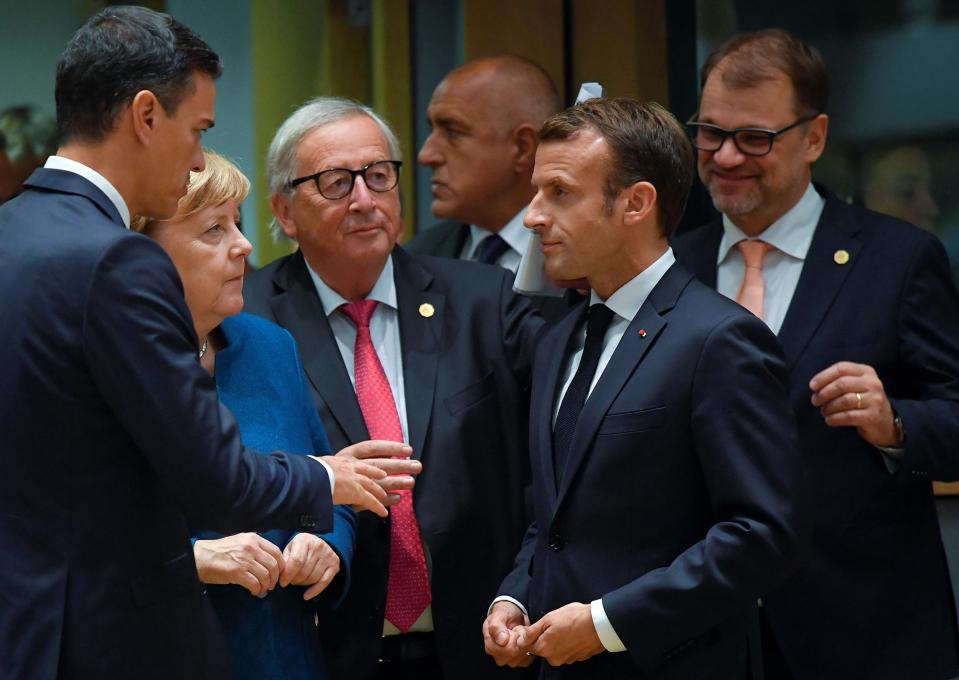EU leaders decide to shelve plans for Brexit summit in November until ‘decisive progress’ is made
The 27 EU leaders have decided to shelve plans for a special Brexit summit in November until “decisive progress” is made in talks.
The decision, which was made after leaders met in Brussels on Wednesday night, is a blow for Theresa May, who had hoped to be able to negotiate face-to-face with her counterparts and bypass the EU’s chief negotiator Michel Barnier.
EU sources familiar with the meeting however told The Independent that the leaders did not believe enough progress had been made in discussions with the UK to move to a summit to wrap up a deal – following a briefing over dinner by their chief negotiator.
The leaders are also understood to have agreed to stand behind Mr Barnier, reaffirming their “full confidence” in him as their representative in talks. A source said they would convene a summit only “if and when” Mr Barnier recommended it was time to do so.
The leaders’ decisions are expected to be reflected in an official summary of their conclusions published on Thursday.
Ms May had the opportunity to address the leaders before dinner, although she was excluded from the final discussion about the way forward.
She told them: “We’ve shown we can do difficult deals together constructively. I remain confident for a good outcome and the last stage requires trust and leadership on both sides.”
The source said the leaders “stand ready to convene a European Council, if and when the Union negotiator reports that decisive progress has been made”. But they added that “for now, the EU27 is not planning to organise an extraordinary summit on Brexit in November”.
Ahead of this week’s European Council, the body’s president Donald Tusk had said the meeting would be “the moment of truth” in talks. However, the emphasis appears to have been taken off the regular gathering, following the collapse of negotiations about the Irish border on Sunday evening.
The prime minister held bilateral meetings with Mr Tusk, Commission president Jean-Claude Juncker, Irish PM Leo Varadkar, and French president Emmanuel Macron.
European Parliament president Antonio Tajani, who also gave his view on negotiations to EU leaders and who heard Ms May’s address, told reporters afterwards: “I listened very carefully to what Theresa May said. The tone was more relaxed than in Salzburg, undoubtedly. There is a message of good will, a readiness to reach an agreement: but I did not perceive anything substantially new in terms of content as I listened to Mrs May.”
He added: “There is no change in content.”
Most leaders made positive noises about the possibility of a deal as they arrived at the meeting, in an apparent bid to avoid the relationship breakdown that characterised the most recent previous summit in Salzburg.
Lithuanian president Dalia Grybauskaitė, one of the 27 leaders, tweeted following the meeting: “Brexit dinner: negotiations not on the menu. Expecting full English breakfast at next meeting”.

 Yahoo News
Yahoo News 

